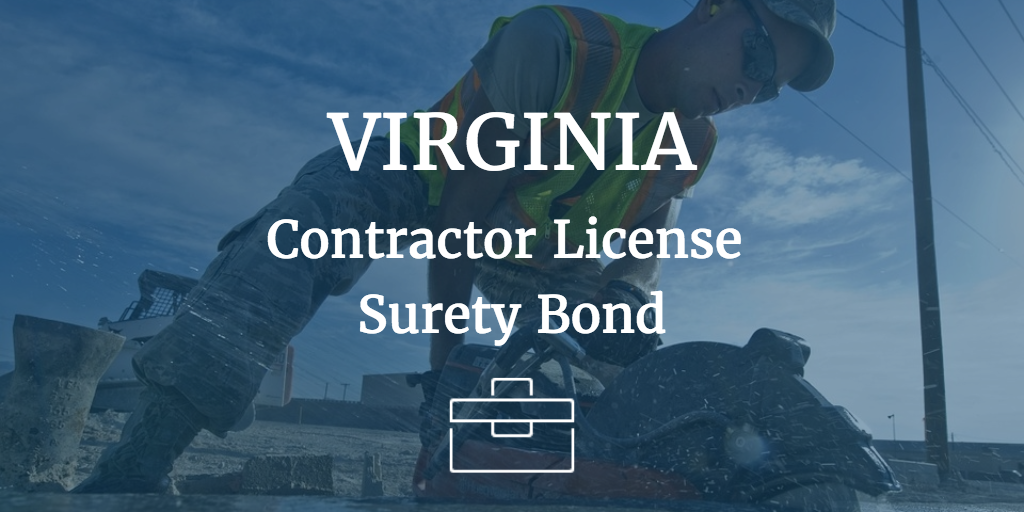Class A and B Virginia contractors will have the option to post a surety bond to satisfy the minimum net worth requirement following the passage of Senate Bill 1113, which takes effect July 1, 2017.
If a contractor handles a single contract valued at $120,000 or more or if the value of all contracts undertaken in a twelve-month period totals $750,000 or more, they are classified as a Class A contractor in Virginia. Contractors handling a single contract valued between $10,000 and $120,000 or total contracts valued between $150,000 and $750,000 are classified as Class B contractors. Class C contractors are classified as such if they handle a single project valued between $1,000 and $10,000 or if the value of contracts in a twelve-month period is valued at less than $150,000. This change affects only Class A and B license holders and applicants.
Under current law, Virginia contractors must provide proof of minimum net worth at the discretion of the Board for Contractors. Class B contractors must be able to show a minimum net worth of $15,000; Class A contractors must show a minimum net worth of $45,000. SB 1113 allows contractors to post a $50,000 surety bond to serve as proof of financial stability. The legislation also defines the other ways contractors can show proof of minimum net worth: on a form as prescribed by the Board or with a balance sheet prepared by a licensed CPA.
In addition to their classification as a Class A, B or C contractor, applicants must specify another license classification or specialty designation from the list on the license application. Examples of these designations include building, commercial improvement, electrical and roofing.
Any entity licensed by the Board for Contractors is required to pay a $25 fee to the Virginia Contractor Transaction Recovery Fund, a fund that provides compensation to “eligible consumers who have incurred losses through the improper or dishonest conduct of a licensed residential contractor.” The fund must be at least $400,000 at all times, and contractors who do not pay the fee may have their license suspended. The fund works much like a surety bond, and a customer’ s maximum claim amount is $20,000, including any amount paid from proven surety bond claims.
Virginia contractors should note that the state recommends checking city and county laws where the applicant plans to do business. For example, the city of Norfolk requires contractors to obtain a city business license in addition to their contractors’ license. Home improvement contractors in Prince William County must become licensed in the county as home improvement contractors, as well as post a $10,000 surety bond for jobs valued at less than $10,000. Requirements vary widely, so be sure to check with local government agencies to stay compliant.
If you have questions about becoming licensed as a contractor in Virginia, contact the Board for Contractors. If you’re ready to buy a Virginia contractors’ surety bond, click below to get started.
